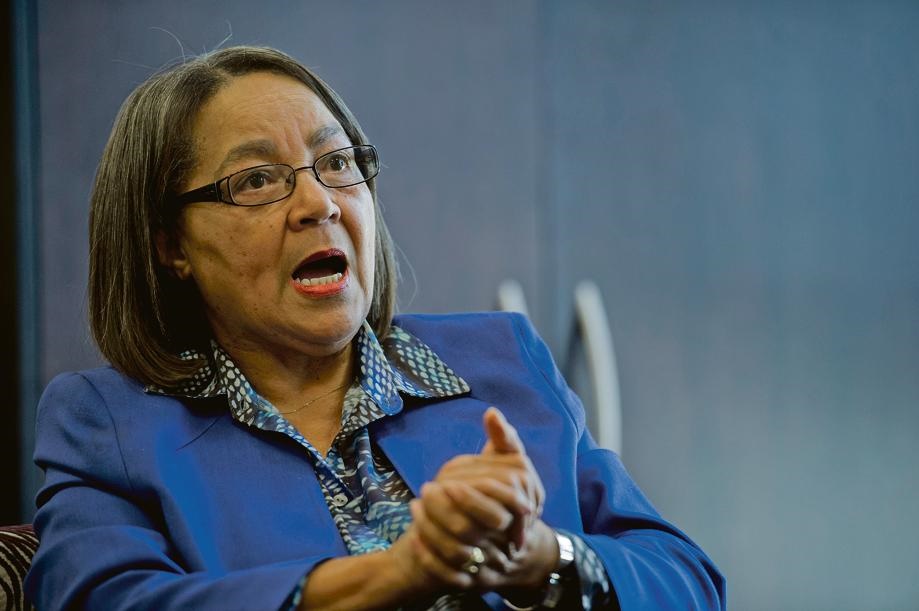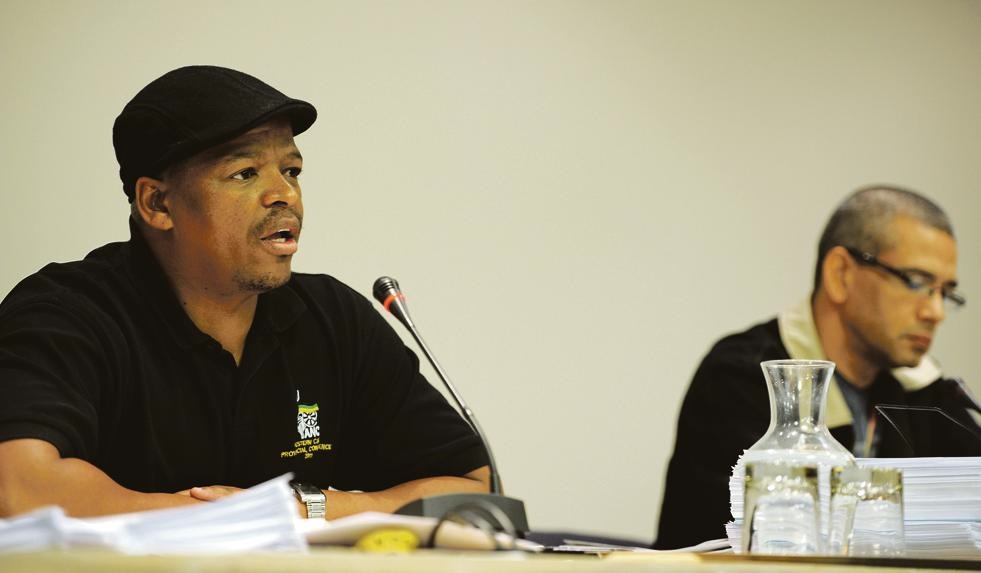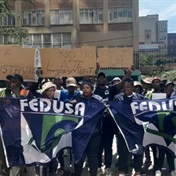Democratic Alliance
Cape Town mayor Patricia de Lille claims the city has done more to address apartheid divisions than any other city in South Africa – rubbishing allegations that the city’s resource allocation was skewed towards the rich.
“Our whole country emerged from this sad past of spatial seclusion. It cannot be undone in just 22 years,” she said.
Speaking in her office on the sixth floor of the Civic Centre on Thursday, De Lille’s tone sharpened when responding to allegations by ANC mayoral candidate Xolani Sotashe that the city’s allocation of resources benefited only the wealthy few.
“In Cape Town, we have a very small rates base. But with the money we collect, we cross-subsidise to provide services to poor people. Unfortunately, councillor Sotashe’s understanding about how government works leaves much to be desired.”
De Lille became mayor in 2011 after merging the party she founded in 2003, the Independent Democrats, with the DA. Combined, they scored just more than 60% of the votes in the Western Cape in 2011.
She is known for not mincing her words.
“The divisions in South African cities are the stark result of apartheid spatial planning. People must stop saying it is only Cape Town. It is only Cape Town that has a plan to deal with it!”
De Lille added that two affordable housing projects were recently launched in central Cape Town: firstly, a project aimed at developing unused space under unfinished bridges in the city’s foreshore; and secondly, a public promenade, shops and a housing development on open land at Maidens Cove, near Camps Bay.
The latter development has been met with outrage from Camps Bay residents, but the mayor stands her ground: “The beautiful Atlantic coast has always been very exclusive. The only time many black and coloured people get to go there is on New Year’s Day. We decided that we needed to build a more inclusive coastline,” she said.
De Lille wrote an open letter to President Jacob Zuma in 2014, requesting his intervention to facilitate the release of two military-owned land parcels flanking central Cape Town – Wingfield and Youngfield – for the provision of housing.
“The answer was absolutely no response,” she says.
De Lille (65) was born in the Karoo town of Beaufort West. After school, she joined the union movement, and was elected to the leadership of the Pan Africanist Movement in 1989.
“I grew up during the apartheid years. I know racism and I know discrimination – and my recollection of that is still as vivid as if it happened yesterday,” she said.
“Growing up, where I went to school was determined by race; where I went to church was determined by race; which shop I could go into it; it was all determined by race. It has been a long journey. I understand the history. I was there.”
De Lille added that she had endeavoured to market Cape Town not only as a tourism destination, but also as a home for business.
She made mention of the IT start-up sector and the call-centre industry as growing job providers in Cape Town.
African National Congress
The ANC’s Cape Town mayoral candidate, Xolani Sotashe, is bent on winning the city’s mayoral chain from Patricia de Lille, who he accuses of perpetuating divides in the Mother City.
On Thursday, Sotashe (44) hit the campaign trail in the townships of Philippi, Khayelitsha and Delft alongside President Jacob Zuma and Marius Fransman, the ANC’s former Western Cape leader who was recently accused of sexual harassment, and whose present position in the party is unclear.
Speaking on the phone from his car while returning from a canvassing trip in the informal settlement of Joe Slovo in Langa, Sotashe told City Press: “We want to make a very clear statement that the ANC is alive. Come August 3, we will take over the City of Cape Town.”
Sotashe dismissed suggestions that the ANC was losing support to the DA and the Economic Freedom Fighters, saying his party’s voter base in the Western Cape was on the rise.
Sotashe matriculated at Ndema Senior Secondary School in the Eastern Cape before moving to Cape Town.
He has served as a city councillor for the past 15 years and as the ANC chief whip in the council since 2011.
Sotashe’s vision is to “bridge divisions between rich and poor”.
How would he go about achieving this?
He said he would start by developing empty tracts of land around Cape Town – such as the Rondebosch Common – for mixed use and affordable housing.
He denied De Lille’s claims that the council spent 67% of its budget on the poor, accusing her of misleading society.
“In Cape Town, you have a city for the rich, and a city for the poor.
“If you go to Philippi and Khayelitsha, you will see a completely different picture from the stretch from Blouberg to Constantia.”
He also said De Lille’s claim that she had tried to have state-owned land around central Cape Town developed for affordable housing, but had received no response from government officials and Zuma, was untrue.
“These are lies. National government has tried, but there has been no cooperation from the City of Cape Town,” he said.
“There is a lack of political will to bring about change, to bridge divides.”
Talk to us
Should well-off people be taxed more to provide services to poor people?
SMS us on 35697 using the keyword TAX and tell us what you think. Please include your name and province. SMSes cost R1.50




 Publications
Publications
 Partners
Partners










